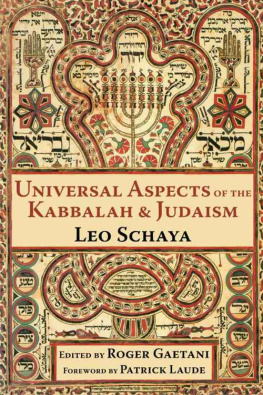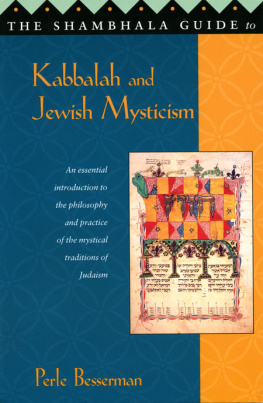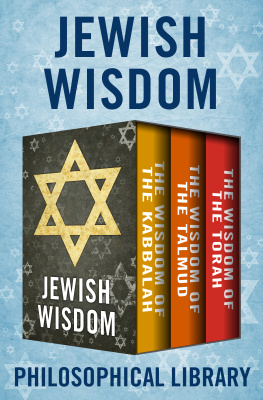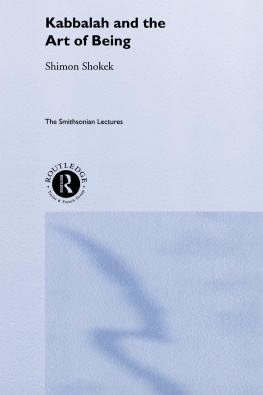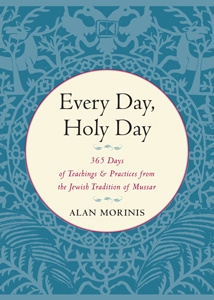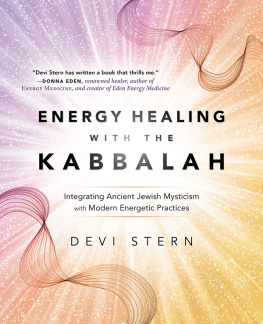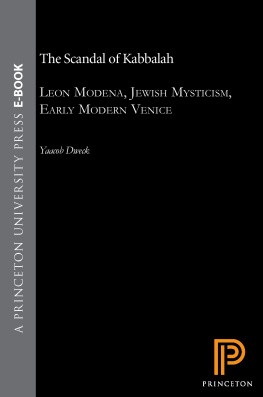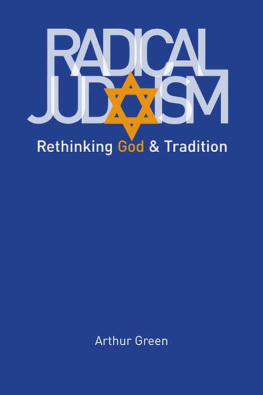World Wisdom
The Library of Perennial Philosophy
The Library of Perennial Philosophy is dedicated to the exposition of the timeless Truth underlying the diverse religions. This Truth, often referred to as the Sophia Perennisor Perennial Wisdomfinds its expression in the revealed Scriptures as well as the writings of the great sages and the artistic creations of the traditional worlds.
Universal Aspects of the Kabbalah and Judaism appears as one of our selections in the Perennial Philosophy series.
The Perennial Philosophy Series
In the beginning of the twentieth century, a school of thought arose which has focused on the enunciation and explanation of the Perennial Philosophy. Deeply rooted in the sense of the sacred, the writings of its leading exponents establish an indispensable foundation for understanding the timeless Truth and spiritual practices which live in the heart of all religions. Some of these titles are companion volumes to the Treasures of the Worlds Religions series, which allows a comparison of the writings of the great sages of the past with the perennialist authors of our time.
Cover:
A shiviti or meditative plaque, by Solomon ben David Attias, 19th century
UNIVERSAL ASPECTS
OF THE
KABBALAH & JUDAISM
BY
LEO SCHAYA
EDITED BY
ROGER GAETANI
FOREWORD BY
PATRICK LAUDE
Universal Aspects of the Kabbalah and Judaism
by Leo Schaya
2014 World Wisdom, Inc.
All rights reserved.
No part of this book may be used or reproduced in any manner without written permission, except in critical articles and reviews.
This ebook contains foreign characters that may not be visible on all eBook devices.
Library of Congress Cataloging-in-Publication Data
Schaya, Leo, 1916-1986
[Works. Selections]
Universal aspects of the Kabbalah & Judaism / by Leo Schaya ; edited by Roger Gaetani ; foreword by Patrick laude.
pages cm. -- (The perennial philosophy series)
Includes bibliographical references and index.
ISBN 978-1-936597-33-8 (pbk. : alk. paper) 1. Cabala--History. 2.
Judaism. I. Gaetani, Roger, 1954- editor. II. Title. III. Title: Universal aspects of the kabbalah and Judaism.
BM526.S314 2014
296.1'6--dc23
2013048238
For information address World Wisdom, Inc.
P.O. Box 2682, Bloomington, Indiana 47402-2682
www.worldwisdom.com
CONTENTS
by Roger Gaetani
by Patrick Laude
EDITORS PREFACE
World Wisdom is pleased to present this edition of key writings by the Perennialist writer Leo Schaya. World Wisdoms series of books on the essential writings of major Perennialist/Traditionalist authors is greatly complemented by the addition of these articles from Schaya, an author who devoted so much of his work to Jewish esoterism as a particular lens through which we might contemplate the universal Mysteries.
Leo Schaya (19161986) was a close associate of Frithjof Schuon and was much influenced by the thought and writing of Schuon, Ren Gunon, and Titus Burckhardt. Yet, Schayas own writing also drew very heavily upon the Hasidic traditions of his Eastern European Jewish ancestors. It is this current of esoteric Jewish thought coursing through an intellect expanded by the Sophia perennis that gave Schaya much of the raw material and the particular direction of his writing.
Schayas work is important to the body of Perennialist writings for several reasons. The first is his extensive treatment of Jewish esoterism, as well as its texts, primarily the Zohar, and its practices, which receive only occasional mention elsewhere in the works of other Perennialist writers. The second is Schayas style, which sometimes borders on the ecstatic, thus mirroring the writings of the great Kabbalists; this aspect of his writing is examined in the excellent Foreword to this volume by Patrick Laude. Third, Schaya had a powerful attraction to the inner meaning of sacred symbols, and although all writers of his school of thought share this tendency, Schaya often chose to write expansively upon one or several related symbols. Finally, Schaya made significant contributions to the body of scholarly studies that reveal the capacity of an integral tradition, in this case Judaism, to serve as a vehicle through which we might perceive the universal realities that underlie all authentic traditions. According to a central Perennialist principle, it is in the nature of things that these pure realities exist beneath the clothing of the various traditions, and it is a goal of Perennialist writings to illuminate those underlying realities. Leo Schaya often summoned forth the words of both Jewish scripture and Kabbalah to give voice to those truths known to esoterists and metaphysicians of many other traditions.
Some readers will object that they find much of Schayas writing to be too complex and challenging. Others will consider some of it too speculative for their tastes. Still others may find the departures from pure metaphysics into mystical realms unsettling. There is a certain validity to all these objections. Certainly, it would be useful for a reader of Schaya to have a background in comparative religion, the Perennial Philosophy, and Kabbalah in particular, but this is not essential for those willing to forge ahead directly into his work: many terms are explained a number of times and from different perspectives, some of which are likely to be familiar to many readers. We have also included a glossary to assist with many of the terms encountered in this book. No doubt, having a good dictionary of world religions at hand might be useful in many cases. However, it is also quite possible that a reader will be, even for just a few moments, caught up in the current of images and symbols and learn something of the awesome Reality of the Holy One (blessed be He) by a means of understanding that operates at a different level than that of the discursive mind. The Sufis, the Islamic mystics of whom Schaya writes in the final chapter, call this a dhawq, a taste of direct knowledge.
This brings us to an observation of a different sort that many readers make upon reading Schaya. They sense a powerful spirituality behind the words. They experience his words as much as understand them. It is not difficult to imagine Leo Schaya sitting in a circle with others in a synagogue, delving deeper and deeper into the mysteries of a passage from scripture. Yet, Schaya never sought nor claimed the status of a tzadik (a teacher of the Mysteries), and in none of the included articles did he write about his own spiritual life. Even so, it is inescapable that a mind so attracted to the outpouring of the Divine into all creation and a soul so immersed in describing that mystery to others could have existed in a state of exile from spiritual sustenance. We must respect Schayas decision not to make his own spiritual life the focus of our attention, but we are also justified in discerning that there must have been a knowledge more profound than mere scholarly learning underlying his words.
Towards the very end of his life, Leo Schaya turned to more purely metaphysical and philosophical writings, but in this collection we have chosen to focus mostly on his works which used Judaism and its esoterism, Kabbalah, as their point of departure. Many of Schayas articles were published in French Traditionalist journals of the day, and some of these were translated and published in the British journal
Next page
